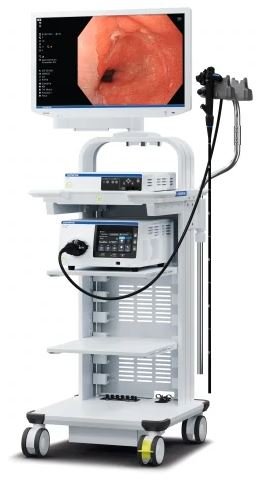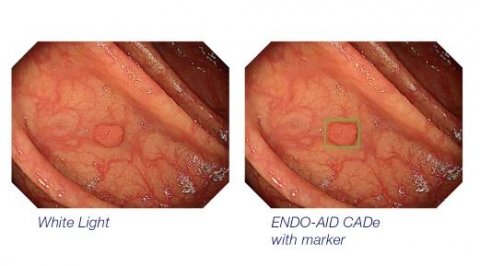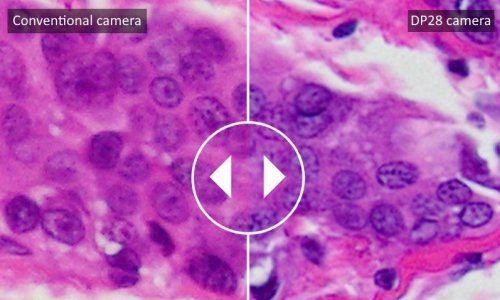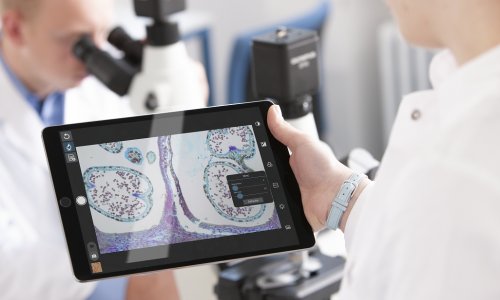News • Computer-aided detection
Olympus launches AI-powered endoscopy platform
Olympus Corporation announced the launch of Endo-Aid, a platform powered by artificial intelligence (AI) that includes the endoscopy application Endo-Aid CADe (computer-aided detection) for the colon.

This new AI platform enables real-time display of automatically detected suspicious lesions and works in combination with Olympus’ recently introduced EVIS X1, its most advanced endoscopy system to date. With the introduction of the endoscopy CAD (computer-aided detection/diagnosis) platform, Olympus is now enhancing the capabilities of EVIS X1 through AI technology, aiming to elevate the standard of endoscopy around the world – whether for applications to disorders of the esophagus, stomach, colon or other gastrointestinal organs.
Endo-Aid CADe is an application for computer-aided detection powered by AI which runs on Endo-Aid. It uses a complex algorithm via a neural network developed and trained by Olympus. With this new application, the system’s sophisticated machine learning can alert the endoscopist in real time when a suspected colonic lesion (such as a polyp, malignant neoplasm or adenoma) appears on the screen.
The application was developed toward the following improvements:
- Improved observational performance in adenoma detection: By providing visual support, Endo-Aid CADe aims to improve the observational performance of the endoscopist’s adenoma detection.
- Support of the colonoscopy screening process: The system provides visual support during screening, allowing the endoscopist to focus on any abnormalities indicated by the software regardless of the experience level of the endoscopist.
- Efficient endoscopy operation: Due to the simple and intuitive display of lesions, Endo-Aid CADe has the potential to make endoscopy easier and more efficient for the endoscopist by reducing the need for excessive eye movements.
Especially in AI, we recognize the power of elevating endoscopic imaging to uncharted levels
Frank Drewalowski
With Endo-Aid, Olympus has created the basis and infrastructure for the installation of future applications supported by AI. “At Olympus we are committed to innovation and driving our research and development with passion,” says Frank Drewalowski, Head of Endoscopic Solutions Division, Olympus Corporation. “Especially in AI, we recognize the power of elevating endoscopic imaging to uncharted levels. Considering Endo-Aid as a first step, we are planning additional AI-powered applications for image detection and characterization – not only for colonoscopy.”

There is a positive impact of an increase in adenoma detection rate (ADR) on the prevention of colorectal cancer (CRC). Supporting the identification of lesions, Endo-Aid CADe is designed to increase ADR. The aim is to increase the quality of CRC screening and its preventive efficacy against CRC. The prevention of CRC is a core element of Olympus' endeavors in medical endoscopy and beyond, the manufacturer states: “With the launch of Endo-Aid, we are not only providing endoscopists across the world with an additional innovative tool,” says Takaharu Yamada, Vice President, GI Endoscopy Business Leader, Endoscopic Solutions Division. “We are also preparing for the future and following our vision of putting CRC in the history books.”
During the virtual United European Gastroenterology Week (UEGW) from October 11 to 13, Endo-Aid will be presented to the public for the first time. It is initially and commercially being launched in Europe beginning in November, followed shortly afterwards by some Middle Eastern, African and Asian-Pacific countries. Japan, the Americas and China markets will follow at a later time after complying with laws and regulations in each region.
Source: Olympus
09.10.2020





